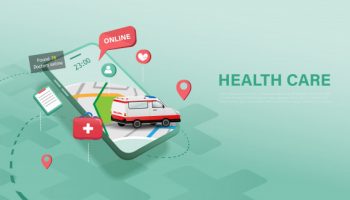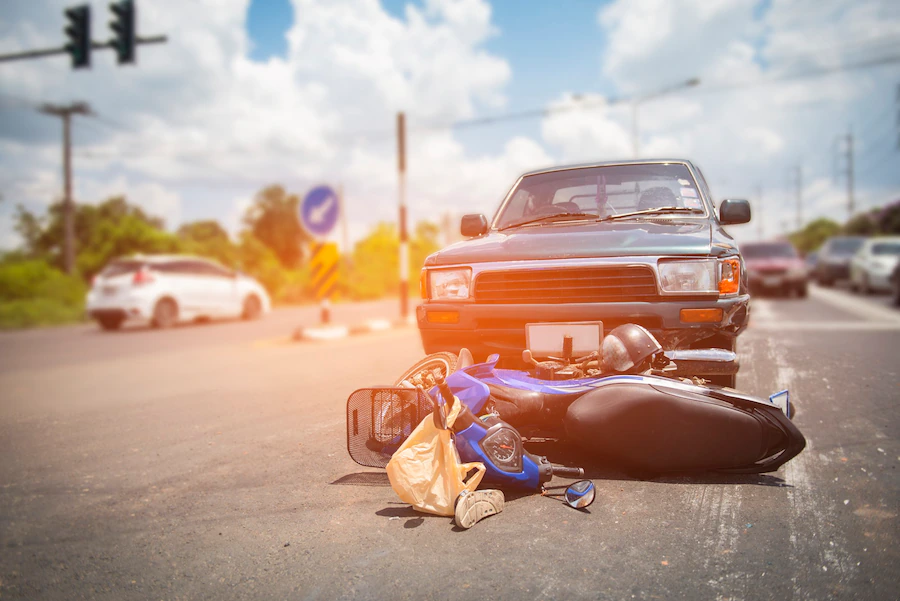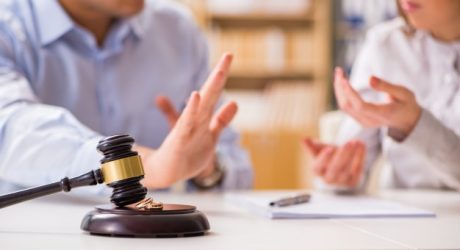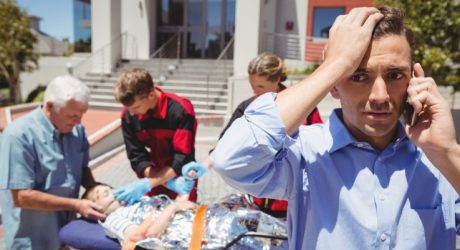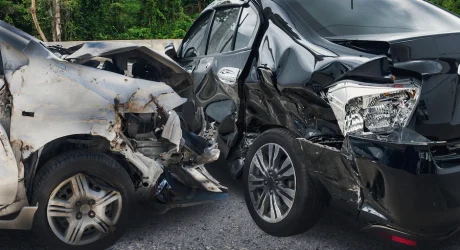As the engine roars, a symphony of power and possibility fills the air. The motorcycle, a mechanical marvel, sits patiently, its sleek frame gleaming under the sunlight.
It is not merely a mode of transportation but an embodiment of emotion. The moment a rider straddles the saddle, a rush of feelings surges through their veins, blending with the rumbling heartbeat of the machine.
With each twist of the throttle, a torrent of emotions is unleashed. Freedom, like a wild stallion, gallops through their soul. The wind caresses the faces, carrying whispers of adventure and the promise of unknown horizons.
In that moment, the world outside the helmet fades away, and the rider is immersed in a realm where worries are left behind, and the present moment reigns supreme.
Defining the feelings you experience when riding a motorcycle is hard.
However, no matter how good you feel riding a motorcycle, it is undeniable that it is dangerous and always prone to accidents.
You will be surprised that out of all the deaths that happen every year, almost 4% of people die in motorcycle accidents.
Motorcycle accidents are common, and you must know what must be done after an accident.
Major Reasons Behind Motorcycle Accidents
Motorcycle accidents can occur due to various factors, and understanding the major reasons behind them is crucial for promoting road safety.
Here are some of the significant factors that contribute to motorcycle accidents:
Lack Of Visibility
One of the primary causes of motorcycle accidents is the limited visibility of motorcycles on the road.
Motorcycles are smaller and less conspicuous than other vehicles, making it more challenging for drivers to spot them, especially in blind spots or during adverse weather conditions.
This can result in collisions when other drivers fail to see motorcycles or misjudge their distance and speed.
Distracted Driving
Distracted driving, such as texting, talking on the phone, eating, or using in-vehicle technologies, poses a significant risk to motorcyclists.
When drivers divert their attention from the road, their reaction time decreases, and they may fail to notice motorcycles in their vicinity, leading to accidents.
Lane Splitting
Lane splitting refers to riding a motorcycle between lanes of stopped or slow-moving traffic. While legal in some jurisdictions, it can be dangerous if not done safely.
Abrupt lane changes or drivers opening car doors without checking for motorcycles can result in collisions. Additionally, other drivers may not anticipate motorcycles navigating through narrow spaces, leading to accidents.
Speeding
Excessive speed is a common factor in motorcycle accidents. Motorcycles have the capability for high acceleration and speed, but they also have less stability and protection compared to four-wheeled vehicles.
Speeding reduces the time available to react to obstacles or changes in road conditions, increasing the likelihood of accidents and making the consequences more severe.
Alcohol And Drug Impairment
Riding a motorcycle while under the influence of alcohol or drugs significantly impairs judgment, coordination, and reaction time.
Intoxicated motorcyclists are at a higher risk of losing control of their bikes, misjudging distances, and making poor decisions on the road, which can lead to accidents.
Lack Of Riding Experience
Inexperience is another factor that contributes to motorcycle accidents. Riding a motorcycle requires specific skills and knowledge that come with practice and experience.
Novice riders may lack the training to handle unexpected situations, navigate challenging road conditions, or properly control their motorcycles, increasing their vulnerability to accidents.
Failure To Observe Right Of Way
Accidents can occur when drivers or motorcyclists fail to follow traffic rules and regulations regarding the right of way.
For example, motorists making left turns may not see approaching motorcycles or misjudge their speed, resulting in collisions.
Similarly, motorcyclists who fail to yield the right of way at intersections or fail to obey traffic signals can contribute to accidents.
Steps To Take After A Motorcycle Accident
Experiencing a motorcycle accident can be a distressing and chaotic situation. It’s important to know the steps to take immediately following an accident to ensure your safety and protect your legal rights.
Here are the key steps to consider:
Prioritize Safety
Assess your immediate safety and move to a safe location, if possible. Turn off your motorcycle’s engine, turn on hazard lights, and use any available safety equipment like reflective vests or cones to warn other motorists.
Seek Medical Attention
Check yourself and others involved in the accident for injuries. Even if you believe you are uninjured, seeking medical evaluation is advisable as some injuries may not be immediately apparent. Contact emergency services if anyone requires urgent medical attention.
Contact The Authorities
In most cases, it’s important to report the accident to the police, even if it seems minor. Call the appropriate emergency number or local non-emergency line to report the incident. Provide them with accurate details and cooperate fully with their investigation.
Document The Accident Scene
If it is safe, gather evidence from the accident scene. Take photos or videos of the damaged vehicles, the positions of the vehicles involved, skid marks, and any relevant road conditions. This documentation can be valuable for insurance claims or legal purposes later on.
Exchange Information
Obtain the contact and insurance information of all parties involved in the accident, including drivers, passengers, and witnesses. Record their names, phone numbers, addresses, license plate numbers, and insurance details. Be polite and cooperative during this process.
Do Not Admit Fault
Avoid discussing fault or apologizing for the accident, as it may be misinterpreted as an admission of guilt. It’s important to let the authorities and insurance companies determine liability based on the facts and evidence.
Notify Your Insurance Company
Report the accident to your insurance company as soon as possible. Provide them with accurate details of the incident. Be cautious when discussing the accident, and avoid speculating or accepting blame until you have consulted with legal professionals if necessary.
Consult With An Attorney
If you sustained significant injuries or believe you may have legal claims related to the accident, it’s advisable to consult Chicago Car Accident Attorney, specializing in motor vehicle accidents. They can guide you through the legal process, protect your rights, and help you seek appropriate compensation.
Keep Detailed Records
Maintain a record of all accident-related documentation, including medical records, police reports, insurance correspondence, and expenses related to your injuries or property damage. This information will be useful during insurance claims or legal proceedings.
Follow Medical Advice And Document Injuries
Adhere to the medical advice provided by healthcare professionals and keep records of your medical treatment, including diagnoses, prescriptions, and any therapies or rehabilitation. This documentation will support your injury claims.
Recovery After A Motorcycle Accident: Follow These Steps
Recovering from a motorcycle accident can be a challenging and lengthy process. It’s important to take the necessary steps to prioritize your physical and emotional well-being during this time.
Here are some steps to consider for your recovery:
Step 1: Seek Medical Care
Follow the recommended medical treatment and advice provided by healthcare professionals. Attend all scheduled appointments, follow medication instructions, and participate in prescribed therapies or rehabilitation programs. It’s crucial to prioritize your physical recovery.
Step 2: Rest And Heal
Allow yourself ample time to rest and recover. Follow any restrictions or limitations provided by your healthcare providers. Give your body the time to heal, and avoid pushing yourself too quickly to return to normal activities.
Step 3: Physical Therapy And Rehabilitation
If your healthcare providers recommend, engage in physical therapy or rehabilitation programs to aid your recovery. These programs can help restore strength, mobility, and functionality and may include exercises, stretches, and other treatments tailored to your injuries.
Step 4: Seek Emotional Support
Going through a motorcycle accident can be emotionally challenging. It’s important to seek emotional support from loved ones, friends, professional counselors, or support groups. They can provide a listening ear, offer guidance, and help you navigate the emotional impact of the accident.
Step 5: Follow A Healthy Lifestyle
Adopt a healthy lifestyle to support your recovery. Eat nutritious meals, stay hydrated, and get sufficient rest. Avoid smoking and excessive alcohol consumption, as they can hinder healing. Engage in light physical activity as recommended by your healthcare providers.
Step 6: Manage Pain And Discomfort
If you’re experiencing pain or discomfort due to your injuries, discuss appropriate pain management options with your healthcare providers. They can suggest pain medications, alternative therapies, or other techniques to help alleviate your discomfort.
Step 7: Communicate With Insurance Providers
Maintain open and timely communication with your insurance company regarding your accident and injuries. Provide them with any requested documentation or information to facilitate the claims process. Consider seeking legal advice if you encounter difficulties or have concerns about your insurance claims.
Step 8: Keep Records
Keep detailed records of all medical treatments, expenses, and any impact on your daily life. This includes medical reports, bills, receipts, and any correspondence about your accident and recovery. These records will be valuable for insurance claims and potential legal actions.
Step 9: Monitor Your Progress
Regularly assess your progress and discuss it with your healthcare providers. Communicate any concerns or setbacks you may be experiencing. They can adjust your treatment plan or provide additional support as needed.
Step 10: Gradual Return To Normal Activities
Gradually reintegrate into your normal activities and routines as your recovery progresses. Start with light tasks and gradually increase your activity level, keeping in mind any physical limitations or recommendations from your healthcare providers.
How Long Does It Take To Recover From A Motorcycle Accident?
The recovery time from a motorcycle accident can vary significantly depending on several factors, including the severity of the injuries, the individual’s overall health, and the specific treatment and rehabilitation required.
It’s crucial to remember that recovery is not solely about physical healing but also encompasses emotional and psychological well-being.
The emotional impact of the accident and the individual’s coping mechanisms can also influence the overall recovery timeline.









